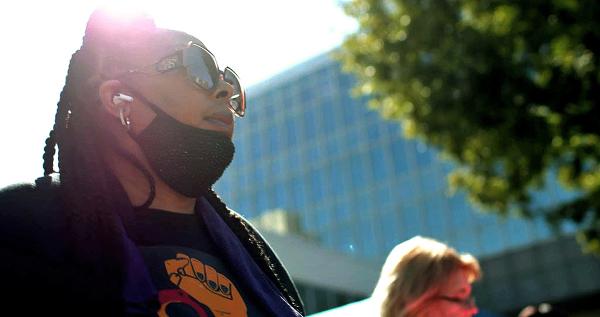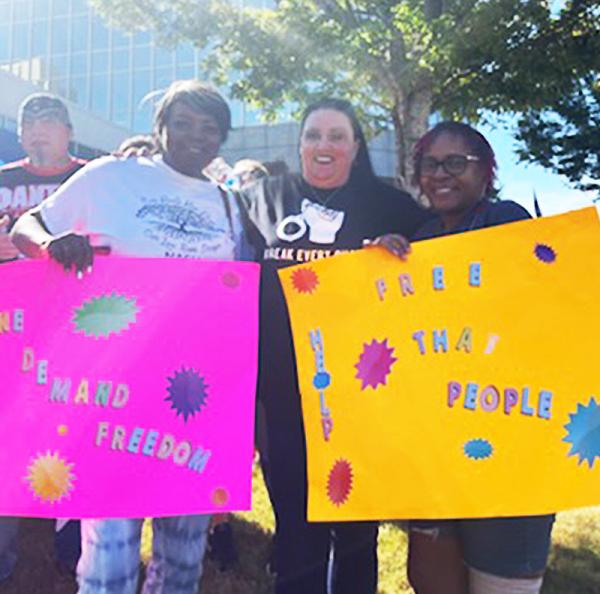
Diyawn Caldwell. Courtesy of Diyawn Caldwell
Q: How did the strike get organized and come together?
Diyawn Caldwell: You know, we were just tired, fed up, at the treatment they were receiving and the conditions. Also, [with policies set by] the parole board and the legislature, these guys have no way out. They have no hope. They have no release, you know? They do everything that they can institutionally inside, as far as taking classes, [being in] the programs, meeting the criteria overall. However, you got more people coming out in body bags than on parole. So, we got tired. It is time for us to stand up. And they [the prisoners] are tired. So, we evolved things together. We were going to do a protest. We need to hit them economically. So that’s when we came up with the shutdown to coincide with the protest outside.
Q: Can you talk about how the prisoners come together to stand up together given how much the system works to divide them and set them at each other’s throats?
DC: See, the thing about it is, they want to paint these as criminals, killers, you know? Crooks, the worst people, the scum of the earth. However, these are human beings. Some just made mistakes. And a lot of them came in as youthful offenders. They had not grown or fully developed at that time so they were doing, basically, what young men do, acting before they’re thinking about their future. They’ve been there now for many, many years, and developed and now they have a different thought process. So, it’s not just violence that goes on in there. It’s not just people against each other. They still have unity. They get together and help one another and encourage and inspire and push one another forward to do things.
So yes, as we can see, as the world can see, they do have the ability to stick together and stand up for what it is that they know it's right. The picture that is painted that everyone is evil—yes, we have some people that are where they need to be—but if you put a system together that is supposed to be for corrections, give a person a certain amount of time and then say hey, if you have 85 percent of your time in, you can be eligible for parole if you do x, y and z, and now, they have completed x, y and z, they have kept a clean disciplinary record, they have worked amongst society,1 you know, without any violent incidents, without any incidents. And they still are not granted parole.
So, do they have the ability to have camaraderie amongst one another? Yes. The world sees that, the nation sees that right now.

September 2022, Alabama rally for striking prisoners. Courtesy of Diyawn Caldwell
Q: What’s the status of the strike and what’s next?
DC: It's still ongoing. And we are having another protest on the Capitol steps, October 14th at 9 am in Montgomery. We are not letting up and we’re not stopping. They are used to us having protests and then going away for a year, for six months, for two years. So [rather than go away this time], we will continue.
Q: It is very inspiring to see people for whom this system has no future rising up like this. What message do you have for our readers?
DC: I would tell them, the picture that the government paints of people in these institutions is not always the correct picture. This is systematic as well. We can look at mass incarceration laws they have passed over the years. I just tell people, we do have people out here fighting. Continue to do what’s right, continue to be peaceful. We’re gonna change the climate and it's coming soon.
Q: Thanks again for talking to revcom.us/REVOLUTION, I know how busy you are.
DC: Thanks for the opportunity to speak on your platform. I’ll keep you updated on what transforms and transpires.

September 2022, Alabama rally for striking prisoners. Courtesy of Diyawn Caldwell